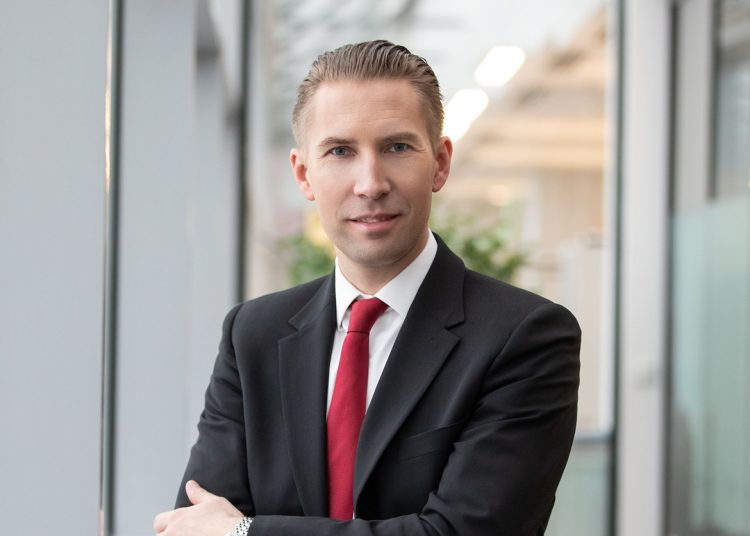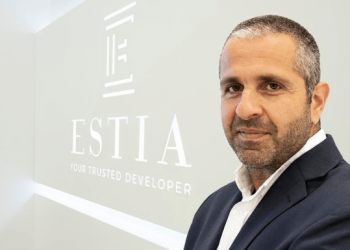JLL Russia& CIS specializes in commercial and residential real estate alike, offering a wide array of investment and consulting services and being present on the Russian market for 25 years.
CEEREM: You have a background in the development sector, could you please paint us a brief picture of your career journey before joining JLL Russia?
I arrived in Russia in 2006 when the market was on a strong upward trend. For six years I worked with Ikea on developing their shopping centers in Russia. Then, I’ve joined Finnish SRV Group and led the company’s development and investment projects in two capitals – Moscow and St. Petersburg – as well as Finland. Finally, three years ago by joining JLL I ultimately took the path towards the consulting and advisory business.
In 2014, political turmoil affected the real estate market, with investments suffering and the ruble’s value dropping by half in just a few months’ time. This negative effect is still felt nowadays. However, during the last year and a half, companies from the Middle East and from Asia have shown an increased interest towards the Russian real estate sector. During my career here, I witnessed how the market went from bountiful (before global financial crisis) to disastrous in 2014 and back to opportunistic after the pandemic.
CEEREM: Regarding international investors and their appetite for certain real estate sectors, what would say are the main trends dominating the market in Russia?
Investment opportunity in the last five years has been found in land and in residential development – with a price increase of 25%-30% last year. In 2021, 48% of investments have been made into land, a big chunk being registered in Saint Petersburg alone – 33% in comparison to the 10-15% average per year. Meanwhile, I believe that land and residential markets will probably slow down in the coming years because the rate has gone up dramatically and people can’t afford to buy apartments in the same way.
A dramatic increase of rent levels in warehouses has been registered in Russia. In two major cities, Saint Petersburg and Moscow, – there are about 24 million square meter of warehouses and less than 1% are vacant. Most new developments are built-to-suit, which means that few speculative is coming to the market at all. It is against this background that we see huge investors’ interest to the warehouse and logistics sector. Though the only effective option for newcomers to enter the Russian market is JV.
CEEREM: But are current owners open to JVs and partnerships, being willing to give up their lion’s share? And is it safe for them to do so?
Everything is for sale – if the price is right. In Russia the focus shifted from international clients to local ones, since the market is very developed in some areas (e.g., shopping centers), but underdeveloped in others (e.g., financial markets). The Russian business mindset is based on buying and keeping an asset for an indefinite period of time, so there’s not much liquidity, even compared to Poland, where JLL is also present. We have a long way to go until this generation of Russian owners will be replaced and the mindset will be updated. Russia has USD 4-5 billion per year investments in the capital market, while in the UK the value is over EUR 40 billion.
As far as safety is concerned, Russia had quite an amazing journey along the years, advancing in the global ease of Doing Business rating from the 124th spot to the 28th in 10 years, so things improved by a lot. There’s almost no investment banking in Russia today, but the banking system is flooded with capital, so its’s easier to loan big sums of money for massive projects. However, it’s quite expensive to start a new investment and this difficult market creates fewer competitors.
CEEREM: Two segments were directly hit by the global pandemic: office and retail – how have these two been faring in Russia?
Warehouses, retail and offices have been changing anyway, the pandemic only accelerated the rhythm. We now see enormous activity in the warehouses sector, the demand constantly increasing (+45% YoY in 2021) with e-commerce gaining popularity. However, Moscow still lacks a refined urban logistics system and e-commerce’s efficiency is directly linked to this. Retail is trying to find a new format combining pick-up points and showrooms rather than sale points, and business centers now putting an increased effort into quality. During the pandemic, working from the office turned into a more flexible concept, becoming more people-oriented, with the emphasis falling on comfort and safety. These new office standards create competition between companies for talent, and thus rise the bar for the entire sector.
CEEREM: If we were to take a peek into the future, what are the main goals you want to achieve with priority at JLL in the next two-three years?
We are going to focus our attention on complex financial and capital markets services. Also, attracting foreign capital into the country is yet another goal we’re pursuing. Naturally, we’ll continue our expansion in the office, retail and warehouses segments, while also bringing more value to our clients.
CEEREM: What would be a nutshell advice for international players that are now looking at the Russian market?
In order to succeed on the Russian real estate market, it would be wise to hire an advisor and find a partner to start their first investment here. There is immense opportunity in this country, especially in improving the quality and efficiency of the already existent assets, including from an ESG perspective which will be the gamechanger in the near future.

















